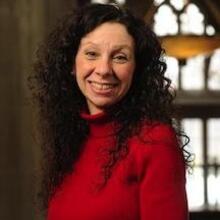Mary Oliver’s Good News
Mary Oliver’s new book of poems, Swan, opens with a good-humored query that might occur to any of her readers: “What can I say that I have not said before?”—an honest and pressing question for a 74-year-old poet who has written 20 collections of poems, won generations of loyal readers and earned the art’s highest accolades over the past five decades (and counting). Thus commences Oliver’s playful and serious engagement of what it means to spend a lifetime making poems.
The themes in Swan are familiar indeed—the astonishing beauty of the earth, the mystery of being, the holiness of life. So too is the terrain—the natural world and its creatures. Yet these are themes and terrain that have been sounded and celebrated by poets for as long as poetry has been composed. Somehow, we do not mind hearing this Good News (which, paradoxically, is not “new” at all), again and again. As William Carlos Williams has observed, poetry not only offers pleasure and consolation; it tells us what we most need to hear: “It is difficult/ to get the news from poems/ yet men die miserably every day/ for lack/ of what is found there.” Oliver, as a faithful practitioner of her art, is willing to fill this need, and so responds generously to the question she has posed: “So I’ll say it again.” And “say it” she does in Swan, with all of the grace, wit and exuberance her readers have come to expect.
Many of the poems in the collection echo this call-and-response mode, a method that invites the reader into the process of discovery. Often the questions are addressed directly to us and serve as challenges to cultivate the discipline of attention the poet practices with such admirable expertise. Oliver’s prodding of her apprentice reader produces some wonderfully fresh articulations of the ordinary, as in “More Evidence”: “Do you give a thought now and again to the/ essential sparrow, the necessary toad?” Good master that she is, the poet embeds the answer within the question, reminding us just how “necessary” the toad is even as we are invited to ponder it.
This interrogative method is featured most effectively in the volume’s title poem. “Swan” unfolds as a series of seven questions, beginning with a query regarding a simple matter of fact and ascending gradually to questions of metaphysical meaning and spiritual significance. Thus the invitation to share the seemingly ordinary experience of seeing the creature (“Did you, too, see it, drifting all night on the black river?”) culminates in the insistent question of what the reader intends to make of what is, in reality, a visionary moment: “And have you too finally figured out what beauty is for?/ And have you changed your life?” The sighting of the swan constitutes, to the poet’s mind, a revelation—a piece of extraordinary good news so powerful one must be changed by it if one is truly alive.
This is Oliver’s vocation as a poet: to urge the reader to bear witness to the world with unreserved fervor and thus to live more abundantly. In this book she accomplishes this urgency through imperatives as well as interrogatives, issuing commands throughout the volume that the reader would be foolish not to obey: “Take your busy heart...to the forest”; “If you suddenly and unexpectedly feel joy.... Give in to it.... Don’t be afraid of its plenty”; “Let laughter come to you now and again, that sturdy friend”; “Refuse all cooperation with the heart’s death,” and, “Sing, if you can, and if not still be/ musical inside yourself.”
This is wisdom the poet imparts through words, the medium of her message and a vital resource she alternately loves and laments, possesses in too great abundance and claims to lack entirely. This paradoxical attitude toward language pervades Oliver’s poems. “April” cautions, “not too/ many words, please, in the muddy shallows the/ frogs are singing.” Words must be used sparingly, lest these sounds meant to communicate the subtle music of nature overpower it. Yet later in the collection, “More Evidence” counters this concern with the ecstatic exclamation “Words are too wonderful for words” and celebrates “The vibrant translation of things to ideas” only words can accomplish.
Oliver wants to have it both ways (as do most poets, trafficking in ambivalence and ambiguity). The unspoken assumption of poetry is that we fall in love with the things of this world in part because we have been taught to love them through the agency of words. Language acquisition is the beginning of knowledge of the world, the other and God even as we perceive our separation from them. It is then through words that we try to mend that separation. Thus poetry possesses the power to redeem even as it signifies our fall from grace.
Throughout Swan Oliver reminds us of the mystery and necessity of poetry, whose source is, ultimately, the Creator. The poet’s song is the analogue to those sung by all creatures: “The leaf has a song in it,” the kingfisher his “hurrah,” and the river “an unfinishable story.” The poet sings, and writes, to translate those songs into language we can understand, but also because that is what poets are made to do. Like her literary mentor, Walt Whitman, whose joyful voice echoes throughout these poems, Mary Oliver continues to practice her vocation, writing and rewriting her own Leaves of Grass well into late age, much to our good fortune. In the concluding lines of the volume, she places her book, an offering, at our doorstep: “This is all I can give you,/ not being the maker of what I do,/ but only the one that holds the pencil.” Thus Swan arrives as unexpected gift, for both poet and reader, and full of the news we need.
This article also appeared in print, under the headline “Mary's Good News,” in the November 1, 2010, issue.








